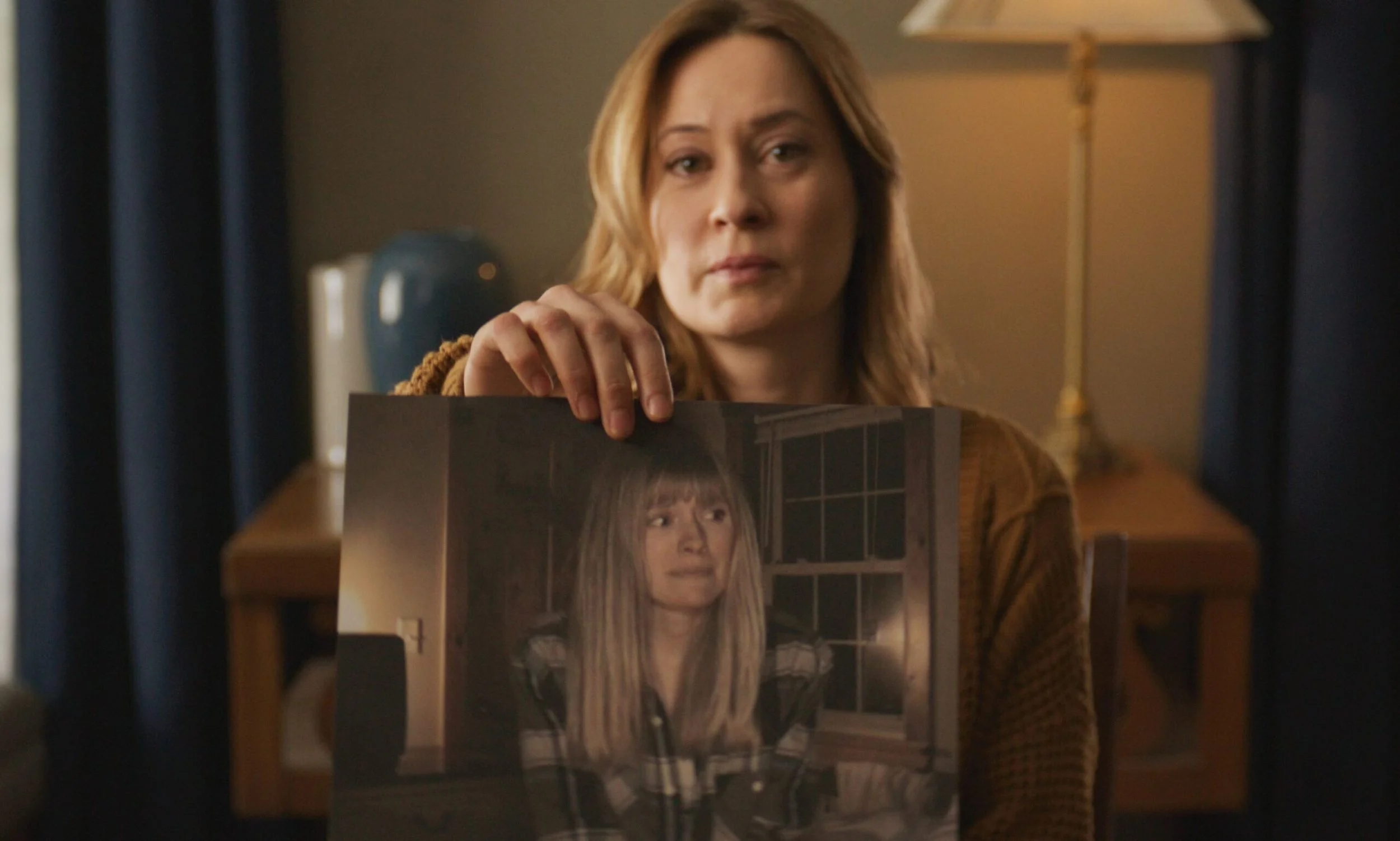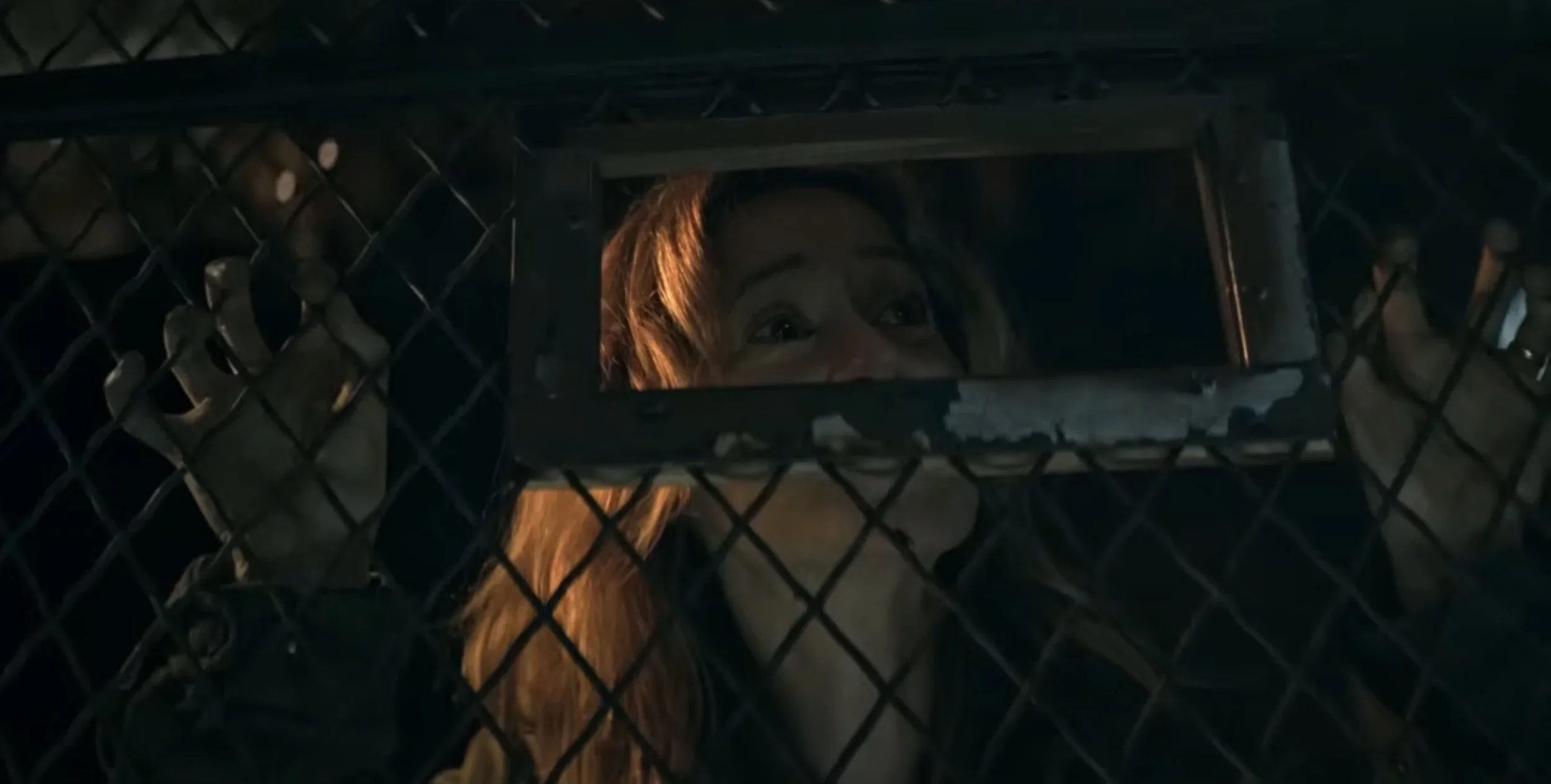Shelby Oaks Movie Review - Getting Stuckmann-ized
There’s been an interesting question that has been raised in online film discussions and in person: “Can a movie critic be a filmmaker?” To answer this incredibly controversial question…uh, duh! Anyone who is willing to put forth the effort and dedicate so much research into the craft, understanding the medium—whether they go to a film school or not, or are a fan of movies—can make their mark in Hollywood. But like publishing your first novel or developing your first video game, the task isn’t easy. It’s incredibly demanding and time-consuming.
Now, this kind of phenomenon isn’t anything new in this generation. Cameron Crowe was a journalist before he sat onto the direct “Fast Times and Ridgemont High”. But one such film enthusiast cementing himself in the cinematic industry is, in fact, YouTube movie reviewer, Chris Stuckmann.
Like many, I have been watching Chris Stuckmann’s channel for many years. Back in the 2010s, he was one of the pioneering voices for movie reviewers, alongside the likes of Jeremy Jahns, The Flick Pick, The Schmoes Know, Spill.com, and many others. When describing a film he loved or hated (more so in his earlier works), you could tell that he has such a clear passion for the art of filmmaking. He’s expressed such ambition by making home features from 2003-2005 and short films such as “Auditorium 6” and “Notes from Melanie”.
Now, with an ensemble cast that includes the likes of Keith David and Camille Sullivan, and getting horror filmmaker Mike Flanagan to be the executive producer of his directorial debut (interesting that since he’s not making the film, the opening title sequence reads “Mike Flanagan presents” on the screen), his passion project, “Shelby Oaks” has officially come to life and hitting cinemas nationwide.
Despite how I feel about Stuckmann, whether it’s his opinions on negative YouTube movie critics or his reasons as to why he’s refusing to do worst lists or review bad movies (especially with controversy surrounding ‘Madame Web’), I can’t help but commend him for finally achieving his dream. He has accomplished what not many young auteurs ever had a chance to do. However, in the case of “Shelby Oaks”, being passionate for the genre doesn’t always translate to good film-making. “Shelby Oaks” is just not a good movie, whatsoever.
12 years ago, in the haunted ghost-town of Shelby Oaks, Riley Brennan, the host of a small YouTube series called “Paranormal Paranoids” (Riley developed the show due to having visions of something haunting her when she was a child) was abducted by a mysterious figure, killing all of her friends in the process. Riley’s sister, Mia, our main character, is trying to spread awareness about her disappearance through a documentary, until one day, a stranger knocks on the door of her house to blow his brains out while holding a cassette tape for Mia to watch relating to the disappearance of Riley. Mia takes it upon herself to scour for Riley in Shelby Oaks, but she isn’t prepared for the nefarious entity that is haunting her.
To give kudos where it’s due, Chris and his team did a very solid job on the marketing for this film revolving around the fictional ghost-hunting mini-series, “Paranormal Paranoids”. One of the cool things they did is that the production team created a YouTube recovery channel that contains “deleted footage” from the original series. From the first episode to the final message from Riley before’s taken away.
It’s no surprise that Stuckmann is taking inspiration from 1999’s “The Blair Witch Project.” The first third of the movie plays out like a quasi-found-footage, mockumentary of the crew’s disappearance, showing the group’s previous findings replete with interactions within the group. The footage of Riley and the crew traveling through dark, haunted places, an abandoned prison (the Ohio penitentiary from “The Shawshank Redemption) and an amusement park is interesting and starts off on a very promising note. For a moment, the film gets you intrigued in Riley’s backstory, her importance to Mia. Though the acting could’ve been better from the supporting characters and the dialogue could’ve been much more natural rather than expository, they give off an adequate impression that you are watching a group of friends trying to explore haunted locales no one has ever been to before.
One of the strengths of Chris’ film making is that he maintains the mystery for such a long stretch, keeping the audience questioning as to what could be threatening the group or who kidnapped Riley Brennan. Is it a cultist? A werewolf? A monster? What is it?
If only the rest of the movie could keep up that momentum. As a filmmaker who resents overused cliches in modern horror movies, Stuckmann sure does insert them by the plenty. Demonic prophecies, our main character going—by herself—to a prison she knows is haunted and infested with a demon, characters creeping around the corner leading up to the inevitable jump-scare, creepy old people you know are hiding something, satanic imagery and rituals involving a baby, a character existing to unload information about events that happened in another location, and so on and so forth. None of them are executed with any modicum of expertise or have any kind of confidence in the writing.
Some fine jump-scares here and there, but after a while the scares begin to underwhelm and wane once we arrive at the second act. Many of them are the kind you’ve seen before, and many of them are pantomimed examples from better horror movies. Corner jump-scares, a character looking into the darkness (while there’s only atmosphere) only to be surprised by something next to the side of her head, quick cuts followed by sudden music cues, etc. It’s as if Chris Stuckmann wanted to repeat what directors like Mike Flanagan or James Wan have done in their horror films, but completely forgot what made the scares spine-chilling in the first place.
For as decent Camille Sullivan is as Mia, the writing of her character is damning. For a character devoted to finding her long-lost sister, it is flabbergasting how many baffling decisions she makes over the course of a story that relies on Sullivan’s performance and character to do the heavy lifting. One example is Mia deciding to withhold evidence from a detective who seems very invested in the case. She explains the reason being is because the police will only acquire it to close the case, but the evidence she is shielding from detectives is brand new and would help the police continue the search.
Many of the narrative decisions in the script don’t make any sort of sense and a lot of the absurdity of the script is found in the third act of the film. And yes, there are some minor spoilers. There is a scene in which Mia figures out what happened to her sister, Riley, while she was being kidnapped by looking through a scrapbook that contains all the photos—in chronological order—explaining one of the film’s many twists. Why would the kidnappers keep a scrapbook of photos of them torturing the victim for a demonic prophecy? It’s as if Stuckmann didn’t have any other clue on how to reveal the twist other than to act as a spirit and say “Hey, Mia! Go open that book because the plot demands it. This will unveil a big twist and change our lead’s worldview on the situation.”
But the part that made me go wide-eyed in disbelief, is not only the film’s anti-climatic third act, but the ending. If I can only say what the ending of the movie is like without spoiling it, allow me to summarize. The script’s most promising plot thread (aside from the found footage) is all a wasted opportunity, Mia becomes a Darwin Award nominee for dumbest character in a horror movie and decides to throw out any level of common sense because of a personal tragedy in life (despite a something satanic happening in front of her very eyes), and the way the film decides to treat one of its main characters after everything she has been through is so unnecessary, distasteful in a writing sense, and only exists to invoke shock value with gore and blood. I guess that's what the $1 million reshoots were for after all.
When I review movies, I try to be as consistent and objective as possible no matter who it is. Regardless of whether it is a director I love and admire or scorn with a burning passion, I try as best I can to provide fair judgement. As much as congratulate a fellow YouTuber who has found success, the harsh truth needs to be said. “Shelby Oaks” is a bad horror movie. A confusing, mangled and poorly-paced horror flick that redefines dull. The writing is amateurish and poorly-structured, feeling like it has two long acts and the last third being rushed to the finish line, the dialogue is compacted with unconvincing, badly-written exposition, our main character makes one confusing decision after another, the horror loses its momentum after the first act, and the film just collapses once the ending arrives.
That being said, as someone who wants to achieve success in becoming an author one day, let me end this review by saying this.
Chris, don’t take what I say about you as a jab from a cynical critic (if you ever read this—you’d probably won’t). Take it as someone who sees the potential that you have to offer. Learn to improve your weaknesses and expand upon your strengths and maybe next time, you’ll be able to forge an unforgettable feature. Rather than blame the studios (as much as they can, at times, play a factor into a film’s failure), take ownership of your faults and go back to square one. One temporary failure doesn’t epitomize the potential you still have left to give. But as it stands, “Shelby Oaks” is a horror flick that should stay lost and never found.
RATING: 1/5



